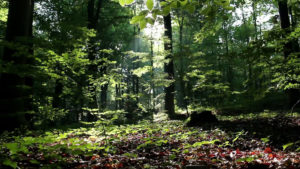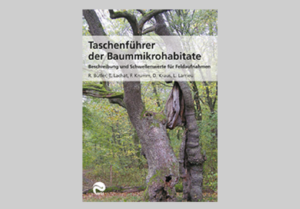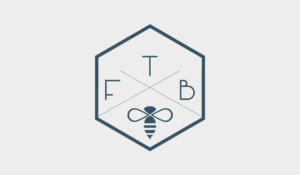Treebeekeeping recognized as part Intangible Cultural Heritage in Poland
14 th of October 2016 in Krakow (Poland) , the delegates from Bractwo Bartne / Fratrum Mellicidarum , received the decision of Minister of Culture and National Heritage of recognizing tree-beekeeping (bartnictwo) as part of Intangible Cultural Heritage of Poland. Delegation was leaded by Piotr Pilasiewicz, the founder of Bractwo Bartne and board member of Tree Beekeeping International. With this nomination treebeekeeping was officially recognize as part of culture and tradition of Poland, it is second country in Europe after Belarus that recognize it as part of National Intangible Cultural Heritage
-The treebeekeeping have more than 1000 years of history in Poland, the golden era of this profession was in Middle Ages up to XVI and XVII century. When territory of modern Poland, Lithuania, Belarus and Ukraine was one country of Polish-Lithuanian Commonwealth. However, since 19th century, the tradition of treebeekeeping was replaced, almost entirely by standard beekeeping, or simply banned by the authorities. It survived in many remote villages in Belarus and northern Ukraine. Also we ménage to find and prove the few tiny links to the great past of the treebeekeeping tradition on the area of modern Poland. We found and interview the last few peoples in Poland, from Kurpie region and Augustów Forest who preserved pieces of treebeekeeping traditions in they family traditions, the tradition of live and work with respect to nature and with obey of her laws. One of them Mr. Niemkiewicz from Augustow Forest. He was learned by his father beekeeping in log hives which they bring back from forest’s many decades ago, but till 70′ of XX century they did only this kind of beekeeping. Mr. Niemkiewicz was together with us in Krakow that day, when we celebrate the recognize of treebeekeeping as part of Polish history, tradition and culture.– said Piotr Pilasiewicz
Recognizing local folklore concerning treebeekeeping and preservation of the remains of this traditions in Eastern Europe is also an important mission of TBI.
Treabeekeeping (PL bartnictwo) is a set of practices, knowledge and traditions concerning honey bees, they habits, preferences and behaviors. It is based on belief that honey bees are better off living high above ground and man should not interfere with the development of the bee family. The treebeekeepers makes hollows in the trunks of living trees (tree-hive) or in a logs (log-hive), intended for bees to set in. Treebeekeepers visit they hives rarely, only few times a year. The honey collecting is always in Autumn, traditionally after the Nativity of the Blessed Virgin Mary (8th September), only small amount of honey can be collected, rest should stay for the bees. It’s also a believe that only a righteous and honest man could keep the bees. For depositories of this tradition, the status of a treebeekeeper is something to be proud of.


 14 th of October 2016 in Krakow (Poland) , the delegates from Bractwo Bartne / Fratrum Mellicidarum , received the decision of Minister of Culture and National Heritage of recognizing tree-beekeeping (bartnictwo) as part of Intangible Cultural Heritage of Poland. Delegation was leaded by Piotr Pilasiewicz, the founder of Bractwo Bartne and board member of Tree Beekeeping International. With this nomination treebeekeeping was officially recognize as part of culture and tradition of Poland, it is second country in Europe after Belarus that recognize it as part of National Intangible Cultural Heritage
14 th of October 2016 in Krakow (Poland) , the delegates from Bractwo Bartne / Fratrum Mellicidarum , received the decision of Minister of Culture and National Heritage of recognizing tree-beekeeping (bartnictwo) as part of Intangible Cultural Heritage of Poland. Delegation was leaded by Piotr Pilasiewicz, the founder of Bractwo Bartne and board member of Tree Beekeeping International. With this nomination treebeekeeping was officially recognize as part of culture and tradition of Poland, it is second country in Europe after Belarus that recognize it as part of National Intangible Cultural Heritage
-The treebeekeeping have more than 1000 years of history in Poland, the golden era of this profession was in Middle Ages up to XVI and XVII century. When territory of modern Poland, Lithuania, Belarus and Ukraine was one country of Polish-Lithuanian Commonwealth. However, since 19th century, the tradition of treebeekeeping was replaced, almost entirely by standard beekeeping, or simply banned by the authorities. It survived in many remote villages in Belarus and northern Ukraine. Also we ménage to find and prove the few tiny links to the great past of the treebeekeeping tradition on the area of modern Poland. We found and interview the last few peoples in Poland, from Kurpie region and Augustów Forest who preserved pieces of treebeekeeping traditions in they family traditions, the tradition of live and work with respect to nature and with obey of her laws. One of them Mr. Niemkiewicz from Augustow Forest. He was learned by his father beekeeping in log hives which they bring back from forest’s many decades ago, but till 70′ of XX century they did only this kind of beekeeping. Mr. Niemkiewicz was together with us in Krakow that day, when we celebrate the recognize of treebeekeeping as part of Polish history, tradition and culture.– said Piotr Pilasiewicz
Recognizing local folklore concerning treebeekeeping and preservation of the remains of this traditions in Eastern Europe is also an important mission of TBI.
Treabeekeeping (PL bartnictwo) is a set of practices, knowledge and traditions concerning honey bees, they habits, preferences and behaviors. It is based on belief that honey bees are better off living high above ground and man should not interfere with the development of the bee family. The treebeekeepers makes hollows in the trunks of living trees (tree-hive) or in a logs (log-hive), intended for bees to set in. Treebeekeepers visit they hives rarely, only few times a year. The honey collecting is always in Autumn, traditionally after the Nativity of the Blessed Virgin Mary (8th September), only small amount of honey can be collected, rest should stay for the bees. It’s also a believe that only a righteous and honest man could keep the bees. For depositories of this tradition, the status of a treebeekeeper is something to be proud of.









